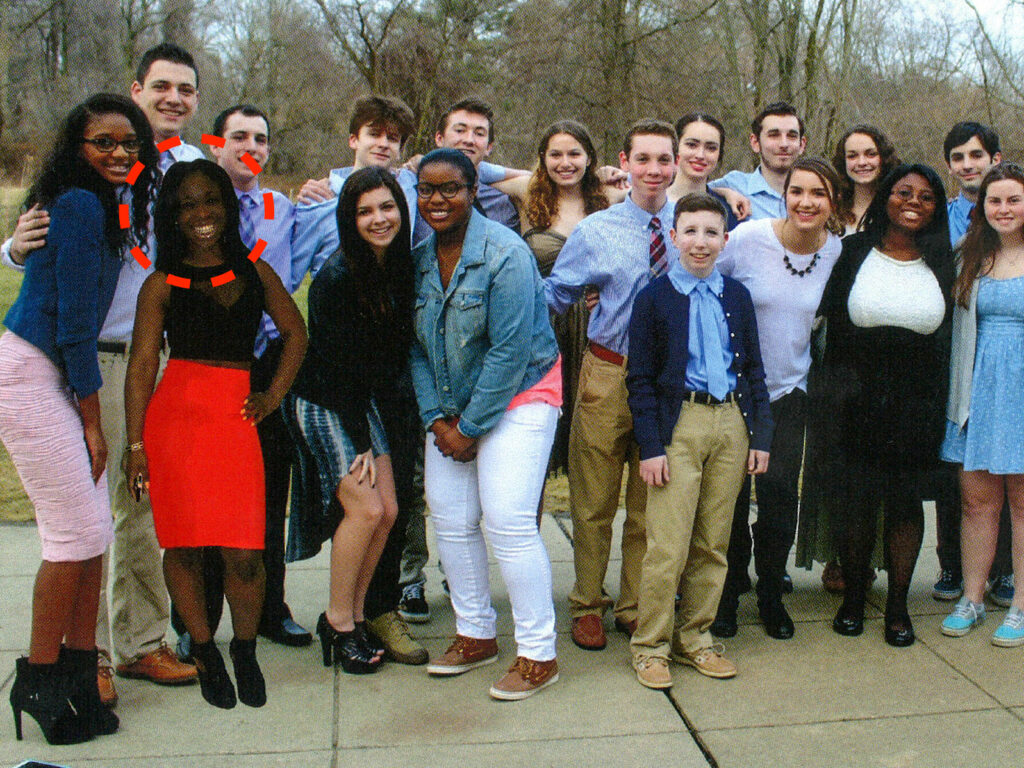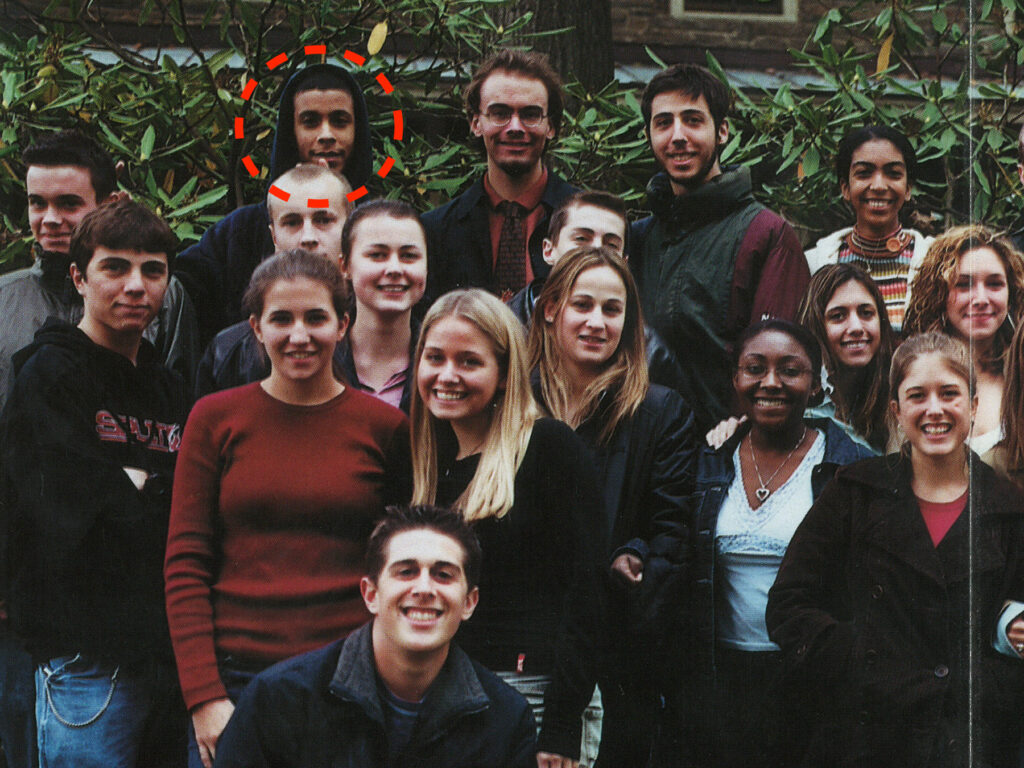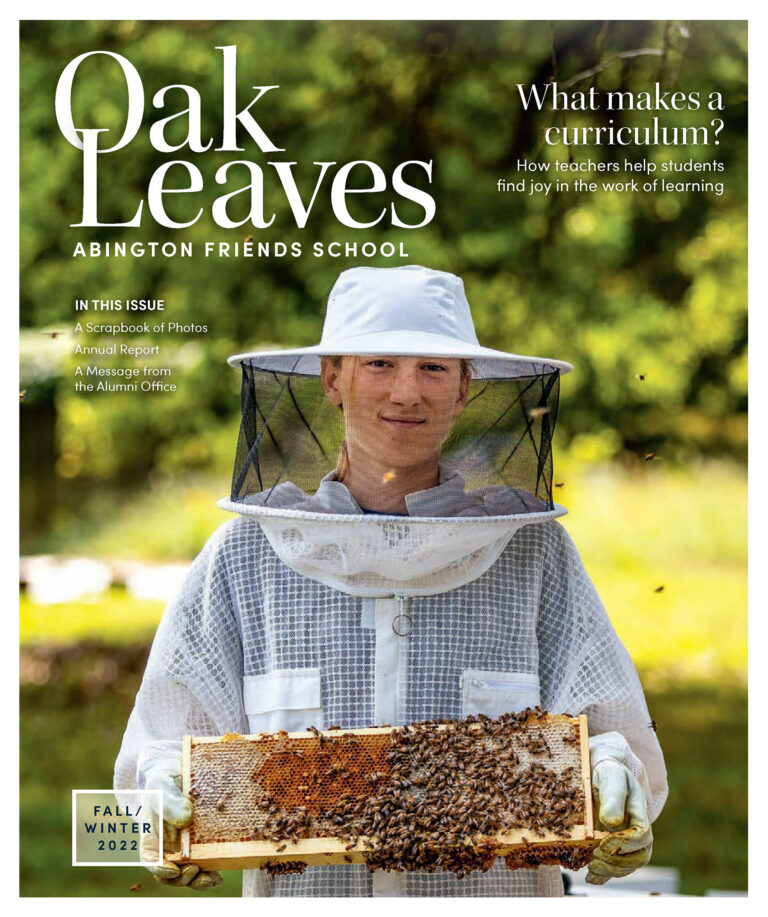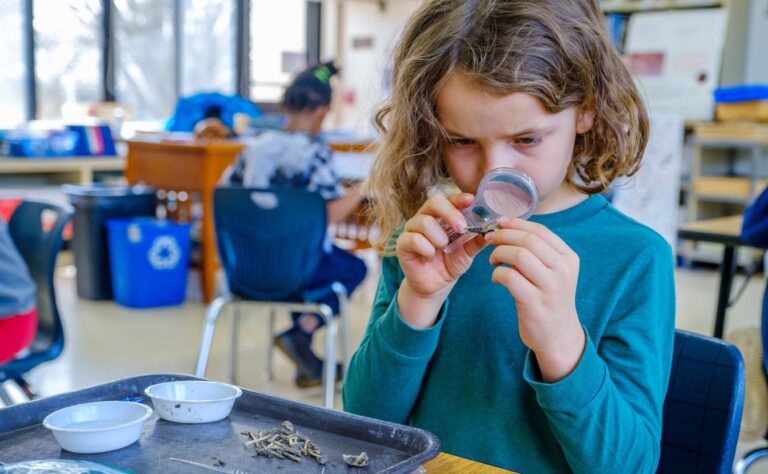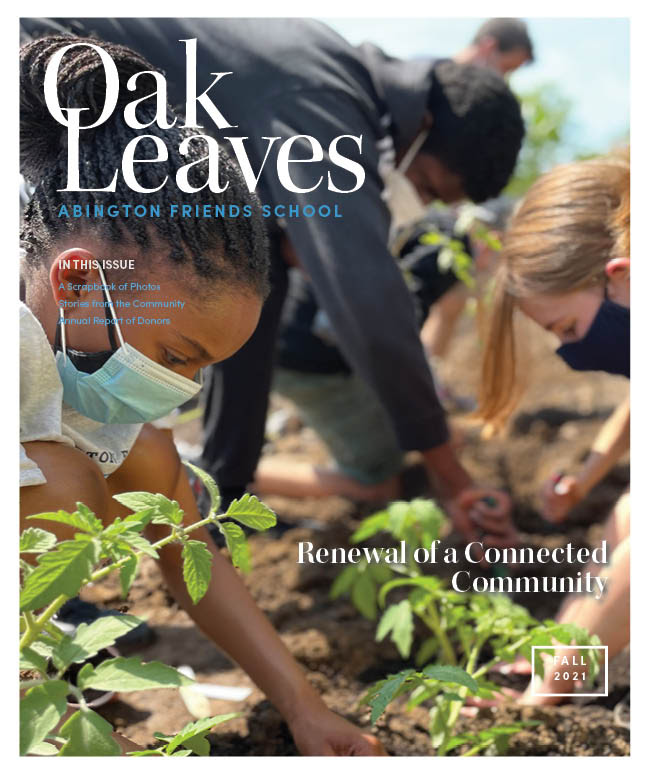Law and Advocacy with Bridget Warlea ’15 and Michael Athy ’04
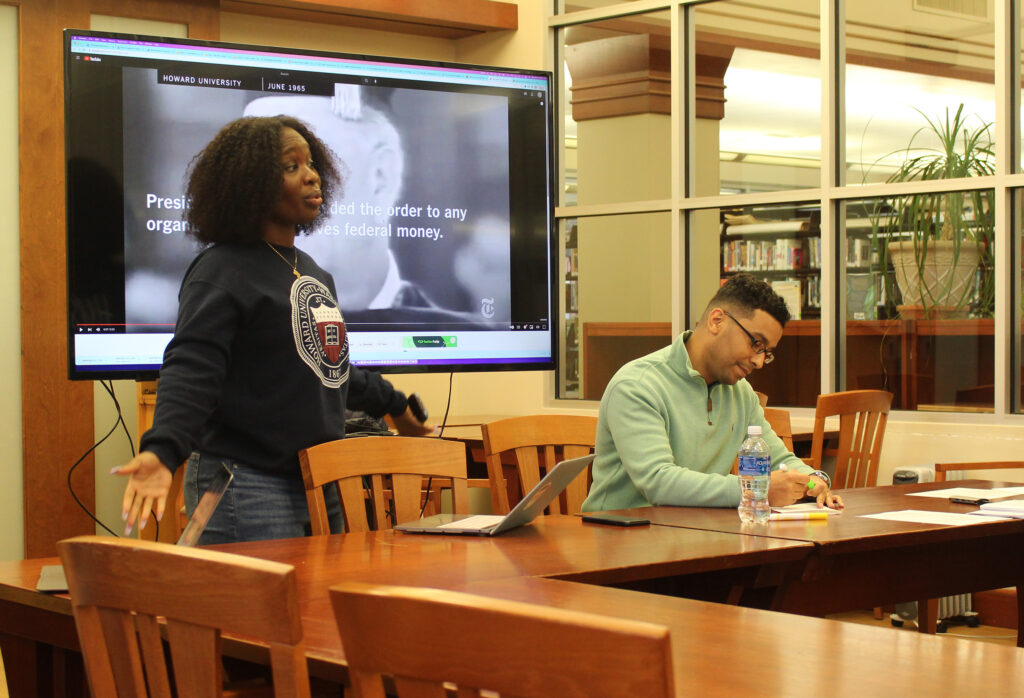
When Bridget Warlea ’15 returned to Abington Friends School to speak to a small group of students, memories began to rush back about her own high school journey. She had been invited to speak with the LawEx cohort—a group of students exploring a potential career in law over the course of several months during the Spring semester—about her time in law school, and could present on any topic of her choosing. But when she heard that fellow alum Mike Athy ’04 would be co-hosting the discussion with her, she couldn’t help but laugh.
“It was too good of a coincidence to pass up,” Bridget explained, “because Mike was one of the reasons I chose to pursue law.”
Before graduating, Bridget thought she knew exactly what she wanted to do with her life. She was accepted to colleges for pre-med, ready to major in biology. She was a three-sport athlete, a leader at the multicultural PRIDE group, and attended a 7-day pre-med program in D.C. that she applied to through AFS long before MedEx was around. In short, she did not just have a plan for her life: She was executing on it every day.
But in January of her senior year, when many 12th graders are aching to start their new lives and anxious to leave their old ones, Bridget attended a roundtable discussion with Mike, where he made the case for pursuing a career in law.
“Everything changed for me,” Bridget recalls. “That night, I went home and told all my schools that I’m changing out of pre-med.”
Instead of biology, Bridget majored in legal studies at Temple University, and immediately started looking for more experience in the field of law. She interned with a judge in family court, (“I learned that that was not where I wanted to be! I cried so much. But it was a good experience.”) and worked at Community Legal Services ensuring that children receive IEPs (Individual Education Plans) and 504 plans. With her undergraduate degree in hand, she was convinced she would attend Temple Law for her J.D., but once again life had other plans: She soon headed south to Washington, D.C., to begin her law school career at Howard University School of Law.
“Howard was the last school I applied to, and I almost didn’t apply,” Bridget says. But she fell in love with D.C. and with Howard, citing both the school’s unmatched commitment to its students, and their engagement with the Houstonian educational philosophy that challenged and delighted her. “Howard is very communal, everyone helps each other, and I’m so glad that I found somewhere that was as similar to AFS as I could.”
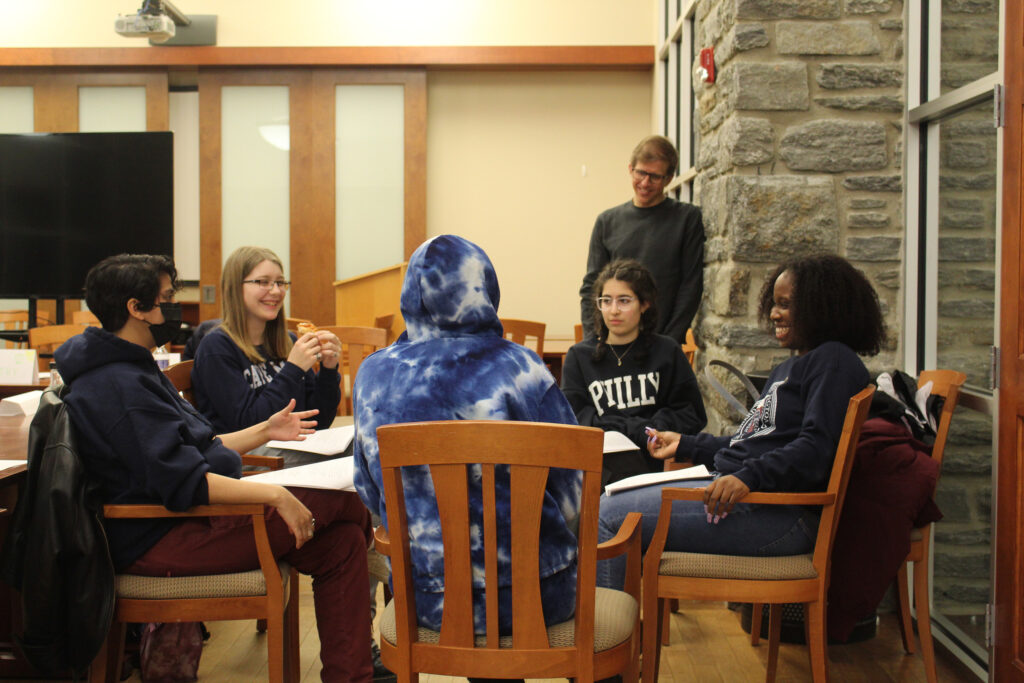
Bridget credits AFS with equipping her with an important key to practicing law: Her calm under pressure. “After all the diversity work I did at AFS—the conferences and events we planned, the tough conversations we had, I can calmly talk about the hardest things and not feel bad if we walk away without agreeing,” Bridget explains. “That is a strength that a lot of adults don’t have. Being open to different perspectives helps me to understand the wider world that I live in, and it makes me a better advocate and lawyer, because I’m able to think from so many different points of view. So I guess you could say AFS prepared me for law in a few ways—both educationally, and by connecting me with Mike.”
Mike laughs whenever he is reminded of this fact. “I was floored, honestly,” he explains. “You never know how what you’ll say to someone will impact them.”
In contrast to the careful planning that Bridget employed, Mike refers to himself as a “right-here-and-now” person. “Almost everything that I’ve done, I didn’t plan on doing. Going to Villanova? I didn’t plan on it. (I picked Villanova because of the name—it sounds like a good school, doesn’t it? Villanova.) Fulbright? I didn’t plan on it. Going to Harvard Law School? I didn’t plan on it. Going to a big law firm? Not on my radar. I mean, a lot of my classmates, they had a plan and they executed on it—that was not me.”
While in college, a mentor encouraged Mike to apply for a Fulbright Scholarship, a choice that would go on to completely change the trajectory of his career.
“My mom told me, ‘We don’t get opportunities like this where we come from, so you have to take it.’ And I’m so happy I did,” Mike explains. “It was the first thing I did that really opened my eyes to so many different possibilities.”
Mike’s Fulbright took him to Korea, where he lived with a Korean family for two years, studied at a Korean school, and worked at a Korean law firm. Mike had found his path—when he returned to the states, he was admitted to Harvard Law School and began working toward a law degree. He went on to work at Advocates for Children doing direct representation work for students with disabilities. Today, he works as a Civil Rights Attorney at the Department of Education’s Office for Civil Rights.
“The Quaker model of education continues to have a really profound impact on me,” says Mike. “I was always amazed how you could challenge teachers at AFS. You can call them by their first names. I felt empowered as a student to voice my opinions, because it didn’t feel like speak when you’re spoken to, it felt like a dialogue. I wasn’t used to being a child and adults telling me, ‘You should speak, you should feel empowered to say what you want to say, your opinion matters.’”
As a lawyer, that ethic is an important part of what guides Mike’s work. “When I was at Advocates for Children, for me it was really about making sure my client felt heard and was heard,” Mike explains. “A lot of my clients just needed help navigating a difficult system and understanding what their rights are. Someone has to be there to tell schools—Every child has certain legal rights. That has to be heard.”
You never know how what you’ll say to someone will impact them.
Michael Athy
Mike and Bridget emerged from the LawEx program newly invigorated. They had designed a seminar-style discussion around a case currently being heard by the Supreme Court—Students for Fair Admissions v. President and Fellows of Harvard College—and led a difficult conversation full of complicated feelings and hard to analyze information. But Mike and Bridget came away amazed with the level of rigor that the students brought to the conversation with their questions and analysis.
As she left, Bridget was excited that so many students stayed engaged throughout the session, even as it got later into the evening. She won’t know for sure for a few years, but she hopes that someone in the classroom who was on the fence about law school might be leaning in now. After all, what you say might change someone’s path without you even realizing it.
